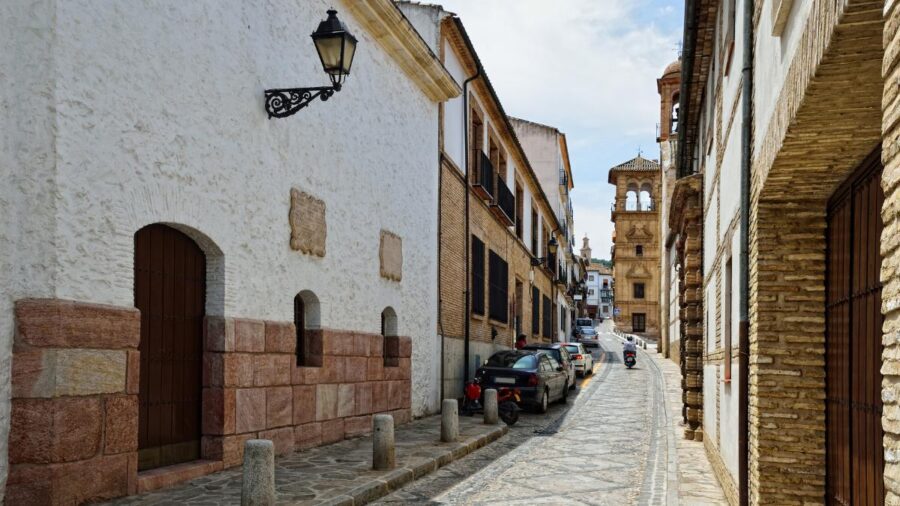Many countries and their citizens around the world are working diligently to do their part to mitigate the climate crisis. AIFS Abroad students are able to see this firsthand during their study abroad and international internship experiences by immersing themselves in the local culture and taking part in our climate change education efforts. By getting involved and observing on the local level, students are able to authentically reflect on their own practices at home. Just ask Catherine, an AIFS Abroad Alumni Ambassador from Seton Hall University who studied abroad in Granada, Spain and is passionate about sustainability:
“Studying abroad in Spain greatly broadened my perspective of sustainability. Sustainability and green practices are greatly encouraged in Spain, and even government mandated in some cases. Seeing a country prioritizing fighting climate change was refreshing, and quite different from anything I have witnessed in the United States. It was interesting to see that fighting climate change was just an unspoken norm in Spanish society.”
Catherine observed and participated in a number of sustainability practices during her study abroad program in Spain:
Intentionally Dividing Trash and Recycling
“First, the division of trash and recycling into even more specific categories was something that I had to get used to. Nearly every street corner had five bins, which I thought looked like spaceships when I first arrived. Each was a different color corresponding to what should be put in each bin. The green bin was for glass; the blue was for paper and cardboard; the yellow was for plastic packaging; and the brown was for compost and other organic waste. Grey was for all other waste. While this was difficult to remember and get used to at first, it felt good knowing that I was being more sustainable in getting rid of my waste and that separating the type of item would make recycling much easier. The one thing that made dividing waste difficult is that in our apartment we were only given one small trash bin, so it was hard to divide up the different items when it came time to take out the trash.”
Limiting Individual Motor Vehicle Use
“Another important sustainable practice that stood out to me during my time in Spain was that the government greatly tried to limit the use of individual motor vehicles. Granada, where I lived, was very walkable and I rarely took public transportation. While most people have cars, a lot of the streets are too narrow to fit them, so the vast majority of people drive motorbikes when going further distances which are more fuel efficient than cars. Additionally, the government has passed legislation that limits motor traffic on certain streets to only residents. This was passed as part of an effort to significantly decrease the country’s overall emissions. The number of cars that are allowed on each street is significantly limited, which both lessens fossil fuel emissions and makes the streets much more pleasant to walk on.”

Conserving Electricity
“Spaniards are quite conservative with their use of electricity and gas, aiming to cut it down in any way possible. One way that this is done is through hanging clothes to dry. Most Spanish people do not have dryers in their house and instead hang their clothes on clotheslines to dry. This practice saves a lot of electricity. Also, they limit the amount of heat or air conditioning they use, by layering their clothes or spending time outside in the summer. Additionally, a lot of the infrastructure was created using materials that produce a cooling effect, as Spain gets very hot in the Spring and summer, so the houses often retain cool, even when it is brutally hot outside. Even small changes such as limiting the use of heat or air conditioning can have a big impact on sustainability.”
In Spain, citizens embrace a range of practices to conserve energy and live sustainability.
While some of these habits can take some adjustment, study abroad students can take comfort in knowing that making these minor lifestyle tweaks can positively impact the environment. Yes, it may take some additional time and effort to separate waste, air-dry laundry, or opt for walking over driving — but it’s worth it. These are simple actions accessible to any student abroad who is looking to adopt a more sustainable lifestyle back at home. Catherine shares:
“Since returning to the US, I have made a conscious effort to try to walk more to places that are a short distance away. Walking not only decreases my own carbon emissions but also is better for my health. Additionally, I have become more conscious about recycling and dividing my recycling between paper/cardboard and plastic/aluminum. This is a better practice to ensure that everything is recycled. Overall, I picked up a lot of sustainability practices through my study abroad experience.”
Spain is doing its part to mitigate climate change and increase its sustainability practices. We are, too!
In response to the overwhelming global climate crisis, AIFS Abroad has made sustainability a key priority when considering organizational, operational, and programming decisions. We understand that the only way to effectively combat this crisis and mitigate the effects of climate change is to drastically reduce our environmental impact. Therefore, we’ve committed to reaching carbon neutrality by the year 2025.
Our Green Initiative has three pillars:
- Green Business that includes auditing our own business practices and our program partners to reduce our consumption of finite resources and limiting our carbon footprint.
- Sustainability Education for both our program participants, through onsite engagement with local environmental projects, and within our industry as a leader in our field.
- Offsetting Carbon Emissions by purchasing verified carbon credits for all our program participants round trip flights to their program location.
